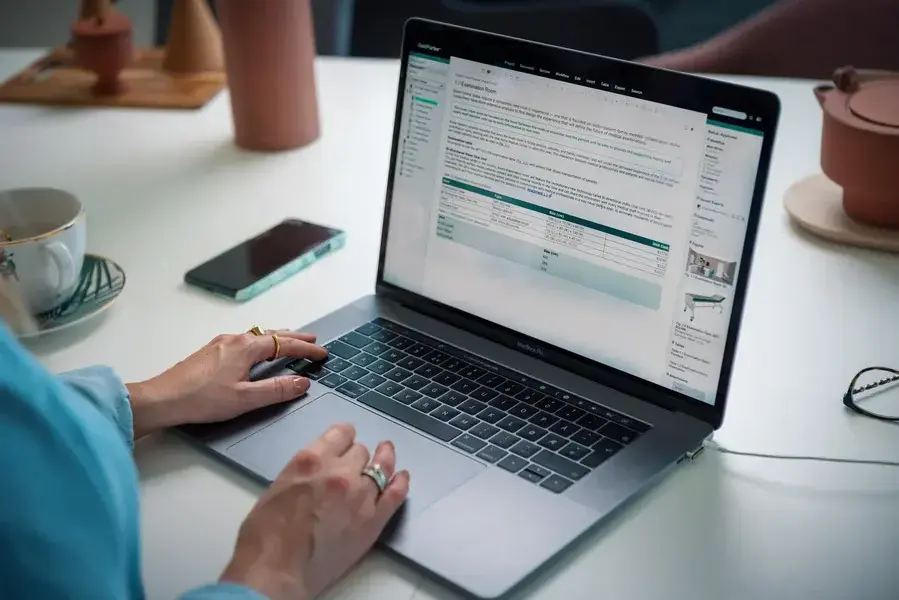A government agency’s decision to buy, and who to buy from, is never trivial. The stakes are high; tax dollars are in play, citizen services are in the spotlight, people’s careers are on the line, and the media is watching. To reach their goals, and mitigate risk, agencies are transparent, defining proposal evaluation criteria which outlines exactly how they plan to balance the right vendor selection with a fair vendor selection.
How do you write for these evaluation criteria? How do you clearly demonstrate you are the right and fair selection? With this blog, we share tips on amplifying your response to evaluation criteria and making it easier for evaluators to choose, and defend, you.
Evaluation Criteria
A significant opportunity is likely to attract at least three to five competing vendors, each with proposals ranging from 1,000 to 2,000 pages. That is a lot of information to process, digest and evaluate. So agencies define weighted evaluation criteria. This way they agree on exactly how they’ll evaluate proposals, especially on things that are not easily quantifiable, such as “soundness.”
For example, here is how one agency defines criteria and scores your proposal:
- Technical Understanding and Competency. (30%) The soundness and quality of your approach, the level of process maturity and the extent to which you address industry leading best practices, and your capacity to effectively implement.
- Innovation and Demonstration through Past Experience. (10%) The extent to which you have innovated and can innovate, the degree to which you can apply that innovation to the proposed project and proof of successful experience with comparable innovation.
- Past Performance. (25%) How well you have performed with comparable customers on relevant contracts.
- Management Approach and Key Personnel. (10%) The soundness of your approach and the qualifications and experience of your proposed key personnel.
- Cost. (25%) The lowest total estimated net cost as calculated according to the outlined methodology.
Evaluation criteria is a systematic decision-making tool for agencies
Evaluation results in an assessment of your ability to successfully accomplish the contract based on these criteria. Just remember, not all evaluators are decision-makers. So the evaluator’s ability to communicate and defend their assessment is critical, especially if the vendor selected was not unanimous.
Writing for Evaluation Criteria
Evaluation criteria is also a roadmap for proposal teams. To get the points to add up in your favor, every single thing you write must consider these criteria and be written for the sole reason of benefitting the agency. For example, the criteria and weighting above describes how your overall proposal score might be achieved.
Yet, far too often, responses to these criteria requirements are lifted from your past proposals or your content library and used “as is.” They are not tailored to scope and are far too generic for evaluators to relate to their specific project. They miss the scoring mark and the details an evaluator needs to defend their selection.
Proposal evaluation is all about perceived value. Whether you’re offering commercial off-the-shelf-software, a custom-build, a sample task order, or a seed project on an IDIQ contract, you must communicate superior value, capability and maturity. In other words, you must invest time in tailoring to differentiate.
Technical Understanding and Competency
Focus on the what and the why.
- What am I going to get and is that in line with our goals? These details help evaluators understand your proposal.
- Why are these decisions on the critical path? Why are these the risks identified? These details lend credibility, while adding the details evaluators might need to justify their selection.
Innovation and Demonstration through Past Experience
Demonstrate how you are proactive.
- How do you understand problems and how do you solve problems? These details help evaluators accept your comprehension and empathy with the problem.
- How do you innovate solutions to problems? How is your solution, and your approach, innovative? These details demonstrate how you think about the future, how you focus on the things you can and cannot control, and that helps evaluators trust you.
Past Performance
Focus on how you have performed against customer expectations.
- How have you done this before? Have you done this before? These details demonstrate your experience with relevant projects.
- How well have you performed? Connecting your narrative directly to how you have achieved success for your customers helps evaluators connect the dots, and imagine what it will be like to work with you.
Management Approach and Key Personnel
Focus on what you bring to the table.
- Providing your work plan and resumes demonstrates you are capable of providing the proposed solution. It is a check-off item on your evaluation criteria checklist..
- To set yourself apart from the competition, demonstrate what your approach and key personnel bring to the table. What about their experience helps you anticipate and overcome obstacles? Understand what decisions impact cost and time-savings? These details demonstrate an approach, backed by expertise, that customers can trust and rely on.
Suggested content



Iterate Rapidly
Details make your proposal clear and compelling. They are a bridge between what you are offering and why you are the right and fair vendor selection. Using details to write to the evaluation criteria aligns your proposal with what evaluators are looking for to maximize your scoring potential.
Getting to that level of proposal maturity, however, takes time. That’s why today’s proposal teams are shifting to a more agile iterative approach to stay competitive.
- Instead of writing in silos, teams are co-authoring, and saving time to invest in the details that drive the evaluation score.
- Instead of waiting to review, teams are writing and reviewing in parallel, and saving time to invest in demonstrating they are the right and fair selection.
This consistent focus on improvement and quality control prioritizes content over process, which feeds directly into evaluation criteria. And your goals to deliver value at volume with the same staff.
Learn how XaitPorter helps teams iterate rapidly to clearly demonstrate how they address evaluation criteria, as well as requirements, up to 70% faster!









